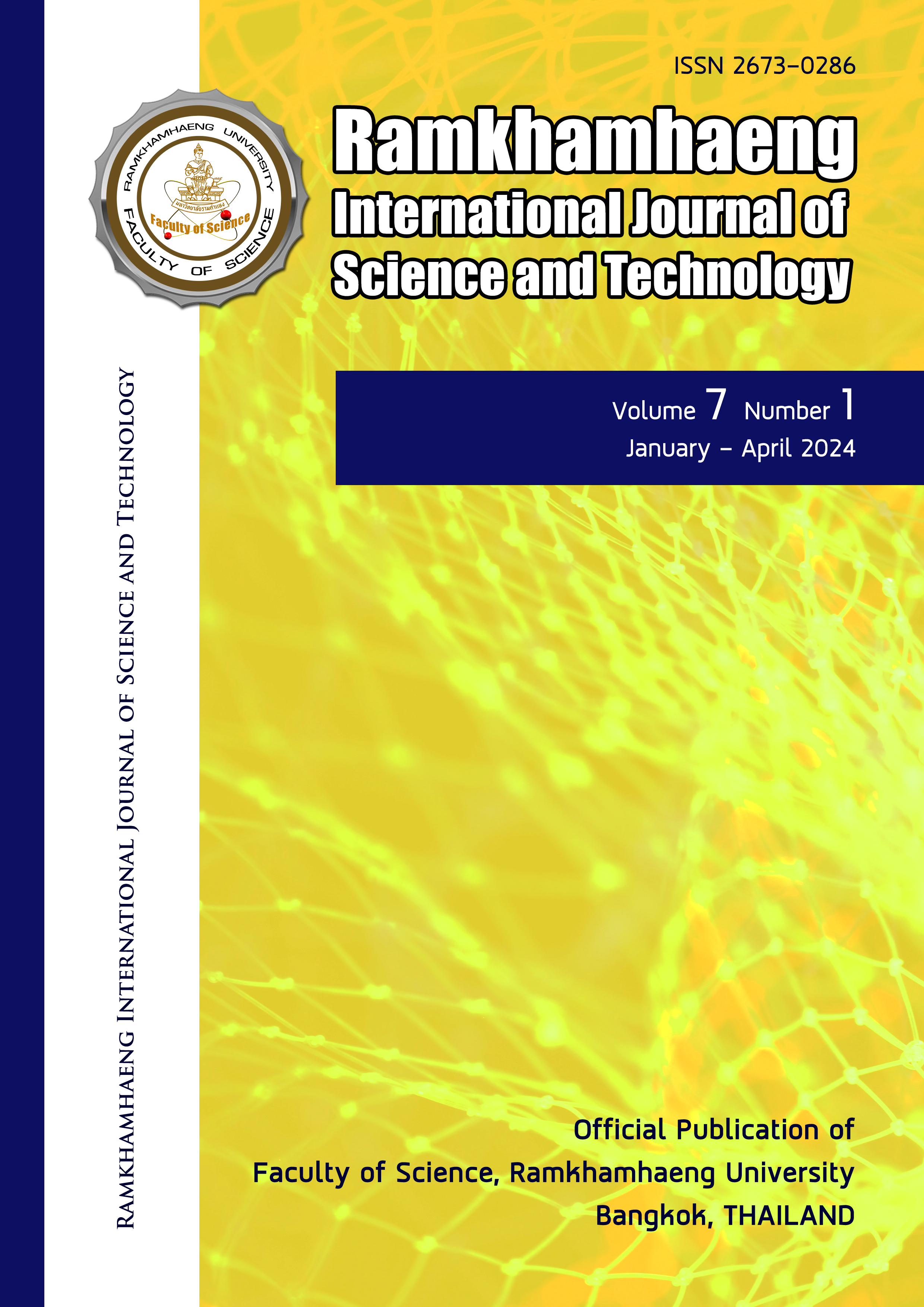Innovations for promoting Thailand's soft power
Keywords:
Digital Innovation, Soft Power, SustainableAbstract
Currently, soft power is considered a crucial approach for countries around the world, serving as a tool to add value to products to stimulate and expand the economy of a country. For Thailand, soft power is given importance through government policy implementation, including driving the One Family One Soft Power (OFOS) initiative. One key factor for successful soft power policy implementation is the use of digital innovations and technologies to facilitate business operations, such as product and service development, customer service automation, new virtual world business ventures, or data analytics for customized service design. Digital innovation in Thailand represents a blend of digital innovation and technology to facilitate businesses and the soft power industry, utilizing "creativity and technological innovations" like Artificial Intelligence (AI), which aids in accessing Big Data for market trend analysis, developing movie or video recommendation systems, etc. The Metaverse creates virtual worlds for interaction, activities, and living through immersive technology, and Web 3.0, which is still under development, focuses on enabling customer participation in various activities as desired. However, for soft power to grow and be sustainable, the public sector should collaborate with the private sector in developing innovations ready for production or market entry, including creating a sandbox for testing and further developing research into products and services.
References
AIS (2022). Moving Businesses Forward with Web 3.0 Strategy. Retrieved March 1, 2024, from https://shorturl.asia/D9zeM
Boworn Tosri-ngam. (2015). Soft Power-Hard Power. Accessed on January 10, 2020. Retrieved March 2, 2023, from https://www.thairath.co.th/content/401926
Chuchat Phuangsomjit (2019). Educational Management Innovation. Educational Management Theory and Practice Series. Nonthaburi: Sukhothai Thammathirat Open University.
Fine Arts Department (2020). Department of Fine Arts Invites Exploration of Ancient Sites with AR and VR Technology. Retrieved March 2, 2024, from https://shorturl.asia/2doS3
Jiraphan Jantawichian (2016). Teaching Material on Innovation Management. Bangkok: Ratchaphat Institute.
Kanyaphak Tissri (2023). AI Narrates History: Advancing Thai Tourism to Soft Power. Retrieved March 2, 2024, from https://shorturl.asia/DumnP
Khon Kaen University (2023). KKU Launches “Molam Metaverse,” a Cultural Capital Innovation for Exploring the Digital World, Elevating Molam Music of Isan to the Digital Sphere. Retrieved March 1, 2023, from https://th.kku.ac.th/142312/
KITTITACHS (2023). Sportlyze: A Sports Analysis Company Taking Thai AI to the Global Market. Retrieved March 1, 2024, from https://shorturl.asia/uKjb1
Kratchaphon Sri-aum (2021). Exploring Problems and Development Strategies for Promoting Thailand's Creative Industries through the Lens of Soft Power. (Thesis). Faculty of Communication Arts, Chulalongkorn University.
Krittaporn Sa-Aeung (2019). Soft Power Policy and South Korean Cultural Exports, 1997-Present. (Research Paper). Faculty of Arts, Silpakorn University.
Mingkwan Boonrod (2018). Impact of Product Innovation and Service Process Innovation on the Marketing Operations of 3-4 Star Hotels in Thailand. (Thesis). Management Technology Department, Faculty of Social Technology, Suranaree University of Technology.
National Innovation Agency, Thailand (2019). Innovation for the Future: Ministry of Culture. Bangkok.
Panchanok Duang-udom (2019). A Study of the Innovation Climate of Schools According to the Views of School Administrators under the Jurisdiction of the Educational Service Area Office, Pathum Thani District 2. (Doctoral Dissertation in Educational Administration, Faculty of Education, Phranakhon Si Ayutthaya Rajabhat University).
Prayaorapat Katsana Wattana (2023). Launching Innovations: Lammetawa Vernacular Medicine Elevates Northeast Thailand's Soft Power in the Digital World. Retrieved March 1, 2024, from https://shorturl.asia/0NdRL
Public Sector Innovation Center, Thailand (2018). The Meaning of Public Sector Innovation. Retrieved March 1, 2024, from https://www.opdc.go.th/psic/main.php?url=content&gp=3&mn=3.
Somneuk Eua Jiraphongphan (2010). Innovation: Meaning, Types, and Significance for Entrepreneurs. Business Administration Journal, Vol. 33, No. 128, October-December 2010.
Bessant, J., & Tidd, J. (2007). Innovation and Entrepreneurship. West Sussex: John Wiley & Sons Ltd.
The Story Thailand (2023). M Vision Joins Forces with Bitkub Metaverse, Showcasing Thai Soft Power to Drive Mass Adoption. Retrieved March 1, 2023, from https://www.thestorythailand.com/24/08/2023/109349/
European Central Bank (2017). Publications on Innovation. Retrieved March 1, from https://www.ecb.europa.eu/home/search/html/innovation.en.html
Nye, J. S. (2004). Soft Power: The Means to Success in World Politics. New York, USA: Public Affairs.
Lemon, M., & Sahota, P. S. (2003). Organizational Culture as a Knowledge Repository for Increased Innovation Capacity. Technovation.
Schilling, M. A. (2008). Publications on Innovation. Strategic Management of Technological Innovation. 2nd ed. NY: McGraw-Hill Education.
Utterback, J. M. (2004). The Dynamics of Innovation. Educause Review, Vol. 39, No. 1, pp. 42.
Downloads
Published
Issue
Section
License
Copyright (c) 2024 Ramkhamhaeng International Journal of Science and Technology

This work is licensed under a Creative Commons Attribution-NonCommercial-NoDerivatives 4.0 International License.
Copyright Notice: a copyright on any article in the published journal is retained by the Ramkhamhaeng International Journal of Science and Technology. Readers or Users grant the right to use of the Article contained in the Content in accordance with the Creative Commons CC BY-NC-ND license and the Data contained in the Content in accordance with the Creative Commons CC BY-NC-ND.



